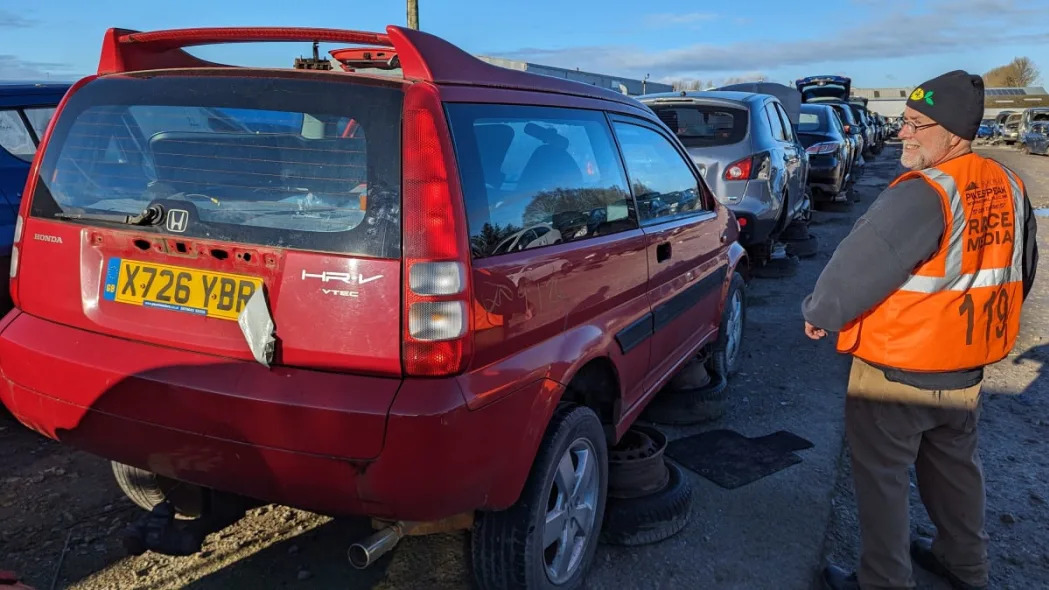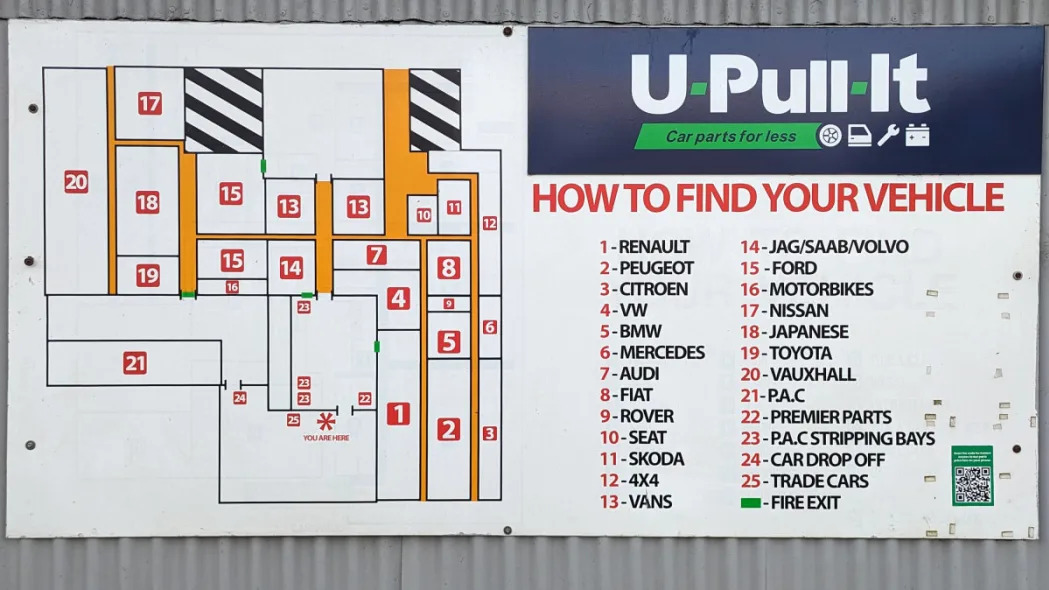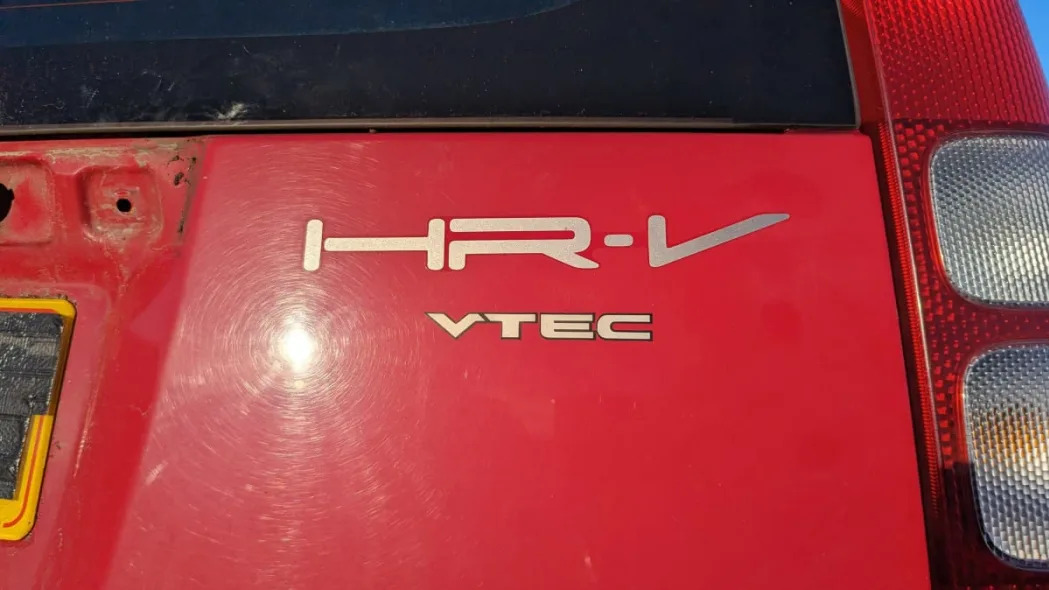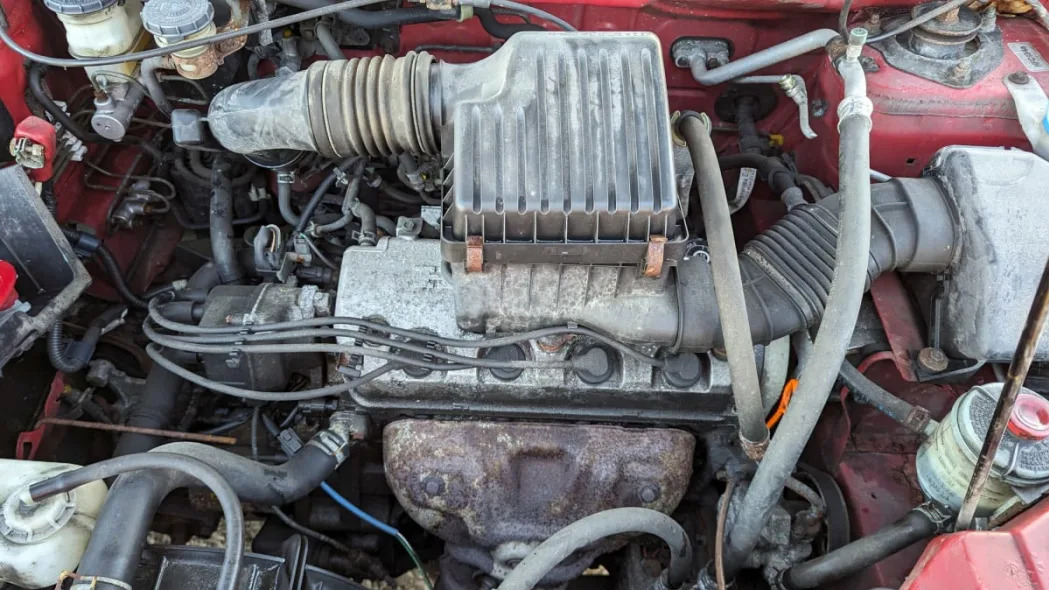YORK, England — Honda began selling the Fit-based second-generation HR-V in the United States as a 2016 model, but we never saw its first-generation predecessor here. That boxier, shorter machine debuted in Japan as a 1998 model and went on sale in Europe for the 2000 model year. During my recent trip to the junkyards scrapyards of northern England (that’s what they call them here) I found this first-year example at the U-Pull-It in York.

U-Pull-It UK is owned by Dallas-based Copart and its two British locations (the other is in Edinburgh, Scotland) operate much like their counterparts in the United States. One difference is that all customers must wear high-visibility vests whilst on the premises, so I brought the one issued to me by the organisers of the Pikes Peak International Hill Climb last summer.

The employees at the York U-Pull-It were very friendly and helpful, though the local dialect can be challenging for natives of the rest of the English-speaking world to understand. I’ve documented some of the cars I photographed at their yard already, including a 2007 Mitsubishi Colt, a 2008 Mitsubishi i, a 2005 Smart ForFour, a 2002 BMW 320td and a 2010 Peugeot Bipper, with many more to come.

The original HR-V was based on the platform of the Honda Logo, which itself was the successor to the Honda City (yes, that Honda City). The all-wheel-drive system was the same one used in the CR-V.

It was designed with its home market in mind and is thus a masterpiece of squeezing a lot of interior space into a small footprint. Two-door and four-door versions were available, while the later generations all had four doors. As you’d assume, the second- and third-generation HR-Vs that have appeared in American Honda showrooms (for the 2016-2022 and 2023-up model years, respectively) are both bigger and more truck-shaped than the first-generation versions. Today’s Junkyard Scrapyard Gem has a curb weight of 2,381 to 2,557 pounds, while the current (Civic/CR-V-based) U.S.-market HR-V scales in at 3,159 to 3,333 pounds.

The engine in this one is a VTEC-equipped 16-valve D16W5 straight-four, rated at 122 horsepower. The transmission in this car is a five-speed manual.

According to information about its final auction, it was a runner with 126,659 miles and some body damage at the end of its road. The doors were all locked and/or frozen shut (it’s very cold and damp in Yorkshire in January), so I couldn’t get inside to photograph the interior.

Would this car have been a sales success in North America, or would it have just cannibalised sales of the CR-V?
Honda hired Southern California ska-punk band Save Ferris to perform for this JDM commercial. Apparently, the “HR” part of the car’s name stood for “Hi-Rider.”
You’d think it would have been impossible for the Netherlands-market HR-V commercial to out-frantic its JDM counterparts, but you’d be wrong.
This four-door HR-V commercial got a Fatboy Slim remix.
In Australia, first-gen HR-Vs were driven by demonic Honda salesmen who tuned into 666 FM during test drives. It turns out the price of one’s soul in 1999 was 23,350 Australian dollars. The Down Under adverts for the second-gen HR-Vs were quite entertaining, too.







